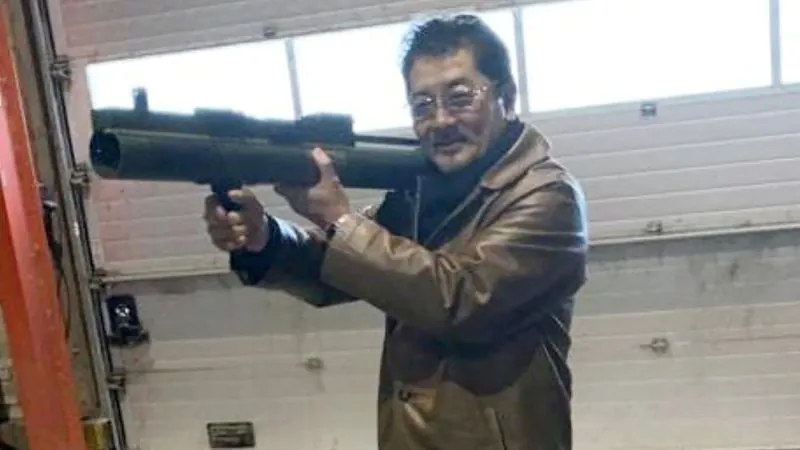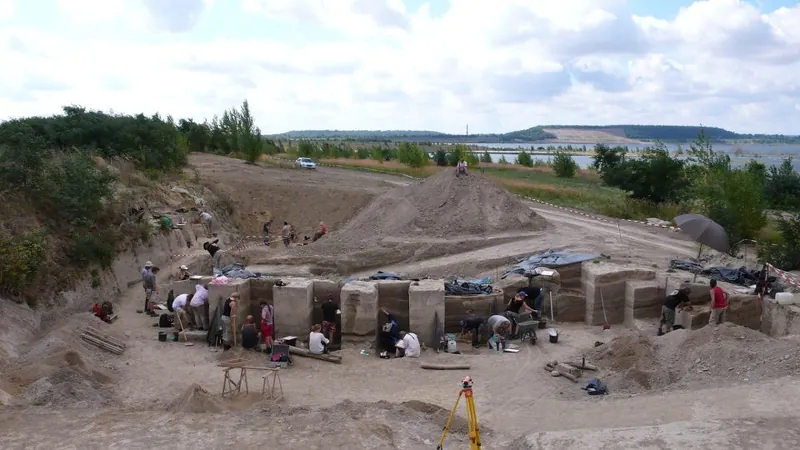
Shocking Admission: Yakuza Leader Takeshi Ebisawa Confesses to Trafficking Nuclear Materials from Myanmar!
2025-01-09
Author: Chun
Introduction
In a stunning development, Takeshi Ebisawa, an alleged leader of Japan's notorious Yakuza crime syndicate, has pleaded guilty to charges of trafficking nuclear materials, including uranium and weapons-grade plutonium, from Myanmar. This revelation emerged from a comprehensive undercover investigation conducted by the U.S. Drug Enforcement Administration (DEA) in 2021, which exposed a vast network involved in the trafficking of nuclear materials intertwined with the global drug trade and arms trafficking.
Details of the Investigation
During the investigation, Ebisawa attempted to sell these dangerous materials to someone he believed was an Iranian general aiming to advance a nuclear weapons program. Ebisawa, 60, entered his plea in a New York court, admitting to conspiring with associates to traffic nuclear resources out of Myanmar while also acknowledging his involvement in international narcotics and weapons charges.
Communications with Insurgent Groups
The indictment reveals that Ebisawa was in communication with an unnamed figure from an insurgent group in Myanmar who could supply him with nuclear materials. This illicit trade was proposed as a means to finance a massive weapons procurement, further complicating the already troubled international landscape of Myanmar—now gripped by civil war since the military coup in February 2021.
Criminal Activities and Charges
In a shocking twist, charges against Ebisawa also included his plans to distribute drugs within the United States and procure American-made surface-to-air missiles. U.S. authorities had apprehended him a year after initiating the undercover operation, underscoring the serious nature of his criminal activities.
Statements from U.S. Authorities
Acting U.S. Attorney Edward Y. Kim emphasized the gravity of Ebisawa's conduct, stating, "As he admitted in court today, Takeshi Ebisawa brazenly trafficked nuclear material... At the same time, he worked to send massive quantities of heroin and methamphetamine to the United States." This network has reportedly seen drug profits laundered from New York to Tokyo, showcasing the global extent of the Yakuza's operations.
Ebisawa's Methods and International Network
Ebisawa's dealings included showing images of radioactive substances, with a Geiger counter measuring radiation levels, and fabricating lab analyses that purportedly confirmed the presence of uranium. His international network spanned multiple countries, including Japan, Thailand, and Sri Lanka, highlighting the extensive reach of organized crime in the region.
Potential Sentences and Implications
Each count of international trafficking of nuclear materials carries a potential maximum sentence of 20 years in prison, with Ebisawa's case serving as a critical reminder of the threats posed by such criminal enterprises to global security. The DEA has reiterated its commitment to dismantling dangerous criminal networks, with Administrator Anne Milgram asserting, "Today’s plea should serve as a stark reminder to those who imperil our national security."
Conclusion
As tensions in Myanmar escalate amidst ongoing civil unrest, the country's wealth in rare-earth materials and other vital resources continues to attract transnational criminal organizations. Ebisawa's guilty plea not only highlights the ongoing challenges in combating organized crime but also raises concerns about the potential implications for international security.
Stay Tuned!
Stay tuned as this story continues to develop!




 Brasil (PT)
Brasil (PT)
 Canada (EN)
Canada (EN)
 Chile (ES)
Chile (ES)
 Česko (CS)
Česko (CS)
 대한민국 (KO)
대한민국 (KO)
 España (ES)
España (ES)
 France (FR)
France (FR)
 Hong Kong (EN)
Hong Kong (EN)
 Italia (IT)
Italia (IT)
 日本 (JA)
日本 (JA)
 Magyarország (HU)
Magyarország (HU)
 Norge (NO)
Norge (NO)
 Polska (PL)
Polska (PL)
 Schweiz (DE)
Schweiz (DE)
 Singapore (EN)
Singapore (EN)
 Sverige (SV)
Sverige (SV)
 Suomi (FI)
Suomi (FI)
 Türkiye (TR)
Türkiye (TR)
 الإمارات العربية المتحدة (AR)
الإمارات العربية المتحدة (AR)